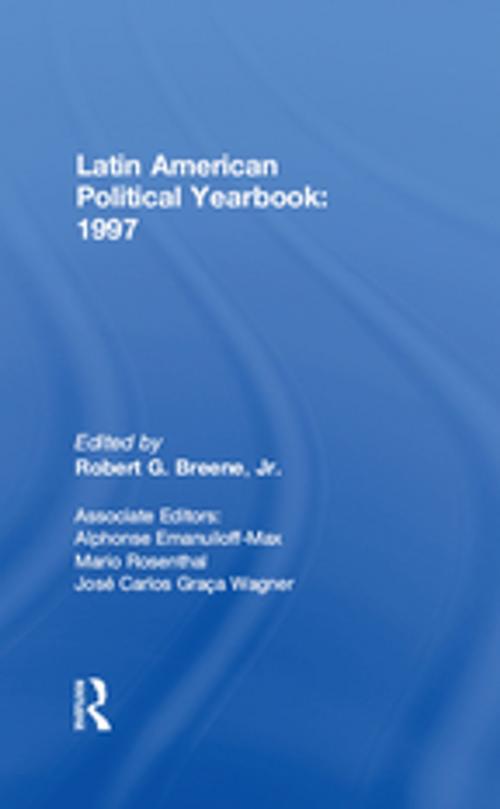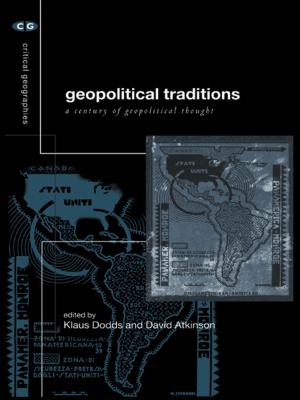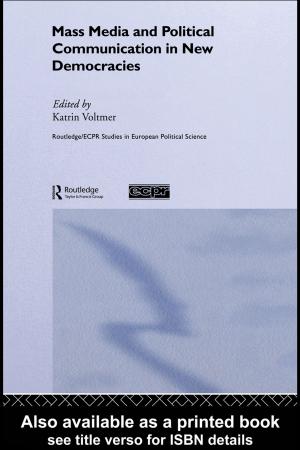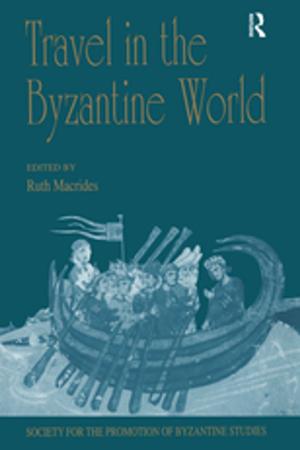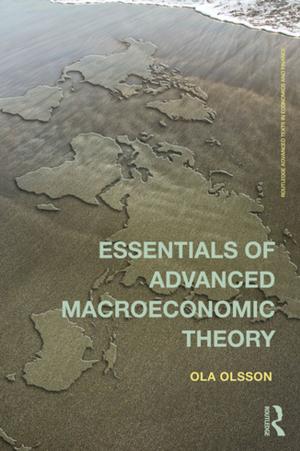Latin American Political Yearbook
1997
Nonfiction, Social & Cultural Studies, Political Science, Politics, Practical Politics| Author: | Jr. Breene | ISBN: | 9781351509701 |
| Publisher: | Taylor and Francis | Publication: | December 2, 2017 |
| Imprint: | Routledge | Language: | English |
| Author: | Jr. Breene |
| ISBN: | 9781351509701 |
| Publisher: | Taylor and Francis |
| Publication: | December 2, 2017 |
| Imprint: | Routledge |
| Language: | English |
"Latin America constitutes a region well-endowed with sovereign nations, cultural differences, and varying states of development and political stability. The end of the cold war and the decline of revolutionary movements and regimes has cast political perceptions of the region in a new light even as it has wrought momentous changes in the individual countries themselves. Latin American Political Yearbook: 1997 provides a comprehensive overview, analysis, and summary of the major political and economic trends and events in Mexico, Central and South America, and the Caribbean both for their significance within special countries, the entire region, and relations with the world at large.Elections and the status of political forces in Latin America are the focus of part 1. It provides an up-to-date, realistic definition of today's political ""Left"" and describes the political situations in the Central American, MERCOSUR, Andean, and Caribbean nations. Moreover, special consideration is given to the case of Nicaragua. In part 2 the politico-economic backgrounds of such representative Latin American nations as Argentina, Bolivia, Brazil, Ecuador, Honduras, Paraguay, and Venezuela are updated to demonstrate that corruption and collectivism have been responsible for most, if not all of the region's economic woes. The next two parts are concerned with the Hemispheric left (HL) and the Hemispheric Left Support, respectively, the former dealing with the loose association of Latin American Marxist and Marxist-Leninist organizations. It begins with an in-depth look at its enigmatic chief, Fidel Castro, and then discusses HL umbrella organizations; Colombian, Mexican, and Central American terrorist groups; HL narcoterrorism; and the special case of Peru. The book concludes with a look at Latin American international organizations Including trade and tariff associations, technical groupings, regional associations, and hemisphere-wide "
"Latin America constitutes a region well-endowed with sovereign nations, cultural differences, and varying states of development and political stability. The end of the cold war and the decline of revolutionary movements and regimes has cast political perceptions of the region in a new light even as it has wrought momentous changes in the individual countries themselves. Latin American Political Yearbook: 1997 provides a comprehensive overview, analysis, and summary of the major political and economic trends and events in Mexico, Central and South America, and the Caribbean both for their significance within special countries, the entire region, and relations with the world at large.Elections and the status of political forces in Latin America are the focus of part 1. It provides an up-to-date, realistic definition of today's political ""Left"" and describes the political situations in the Central American, MERCOSUR, Andean, and Caribbean nations. Moreover, special consideration is given to the case of Nicaragua. In part 2 the politico-economic backgrounds of such representative Latin American nations as Argentina, Bolivia, Brazil, Ecuador, Honduras, Paraguay, and Venezuela are updated to demonstrate that corruption and collectivism have been responsible for most, if not all of the region's economic woes. The next two parts are concerned with the Hemispheric left (HL) and the Hemispheric Left Support, respectively, the former dealing with the loose association of Latin American Marxist and Marxist-Leninist organizations. It begins with an in-depth look at its enigmatic chief, Fidel Castro, and then discusses HL umbrella organizations; Colombian, Mexican, and Central American terrorist groups; HL narcoterrorism; and the special case of Peru. The book concludes with a look at Latin American international organizations Including trade and tariff associations, technical groupings, regional associations, and hemisphere-wide "
